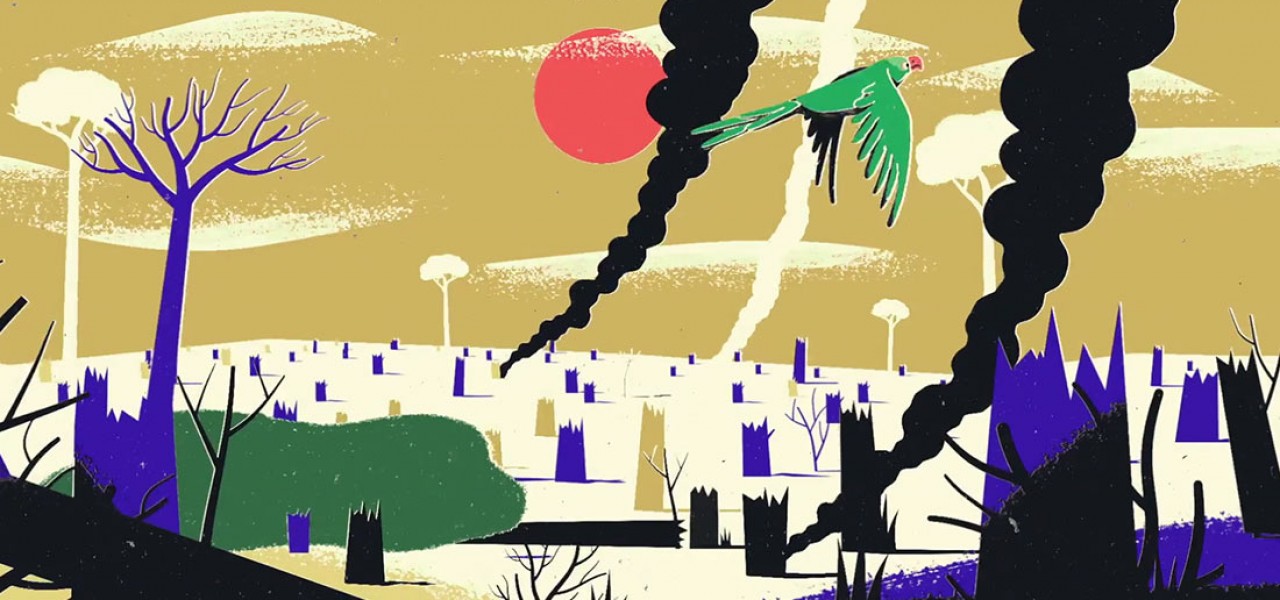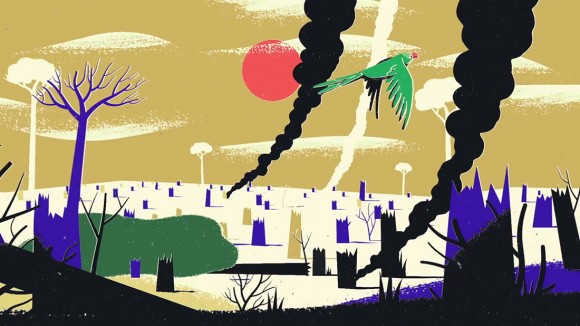

Moth Collective’s ‘Forest 500’ Animates The Reality of Rainforest Destruction
Can an earnest but alarming cartoon help stop the 500 companies, investors and governments deforesting the Earth to crisis?
Yes or no, Moth Collective plans on giving it a shot with Forest 500, its animated short created for the Global Canopy Programme’s initiative of the same name, which has become Earth’s first rainforest rating agency:
In barely two minutes, Moth’s Forest 500 skillfully and succinctly breaks down humanity’s lethal appetite (and deregulated supply chains) for food and products created through runaway deforestation, and how the process could choke the skies and inhibit tropical forests’ much-needed ability to sink carbon dioxide and other pollutants.
“This is our third film produced for them, the others being Planet Under Pressure, released earlier this year, and Amazonia Security Agenda, released in 2013,” Moth co-founder Prosser told Cartoon Brew. “This one has a wider target audience. It asks people to take notice of their everyday habits and consider the products they use as part of the problem, but ultimately notes that it’s the more powerful elements in our world that could really change things.”
Established in 2010 by Prosser, Daniel Chester, and Marie-Margaux Tsakiri-Scanatovits after graduating from Royal College of Art, London-based Moth Collective has been patiently making its name on a series of animated shorts for the New York Times and Al Gore’s Climate Reality Project, among other projects.
“It began as a place where we could filter interesting projects, working in our spare time outside of our day jobs,” Prosser said, adding that Moth is currently working on a series of projects to be released early next year, including a science-fiction short. “Rather than putting pressure on growing immediately, we slowly gained momentum over five years. Since this May, we have been operating as a full-time studio.”
Moth Collective had a shorter schedule for Forest 500, “which pushed us to play with a snappier edit, something we really enjoyed.” They took the time crunch as an opportunity to experiment with new techniques and programs they had never used before, Prosser added, as well a create a dynamic and vibrant color palette that could still function in an organic, nostalgic manner.
“We used cardboard textures, as well as a ‘screenprint’ look, which helped to tie all the shots together,” said Prosser. “There was quite a mixture of vector and hand-drawn elements.”
It all comes together in an informative short that renders what appears to be dizzyingly complex issues of global deforestation and exponential warming into quite simple matters of life and death. The budding artists of Moth Collective have become more educated on these existential issues, having built over five years a portfolio of work based around charities and political issues.
But they are artists first and foremost, Prosser said. “It’s worth noting that we are not activists, but directors, animators and designers.We have just been fortunate enough to work on sensitive and important issues for good clients.”

.png)